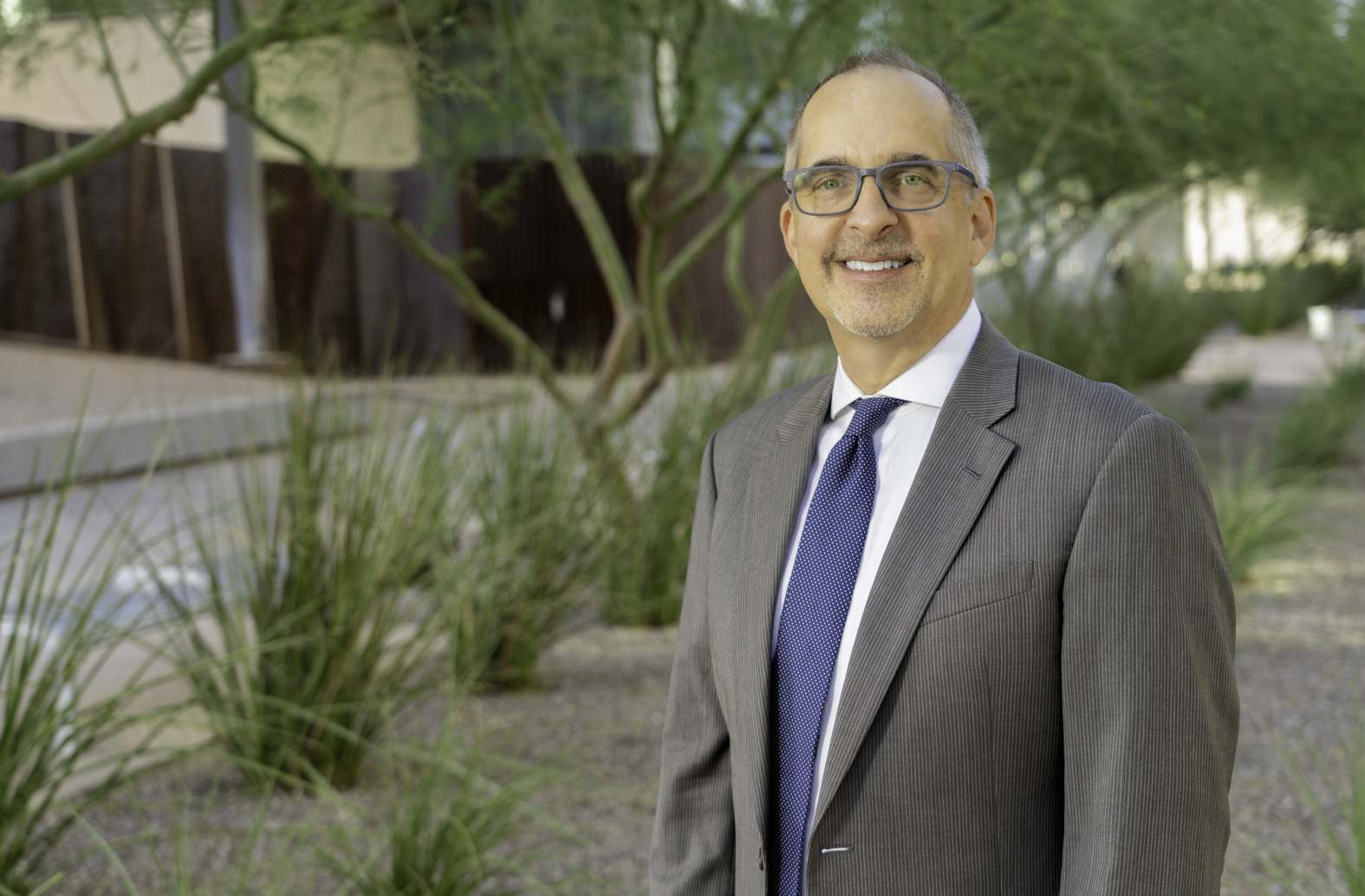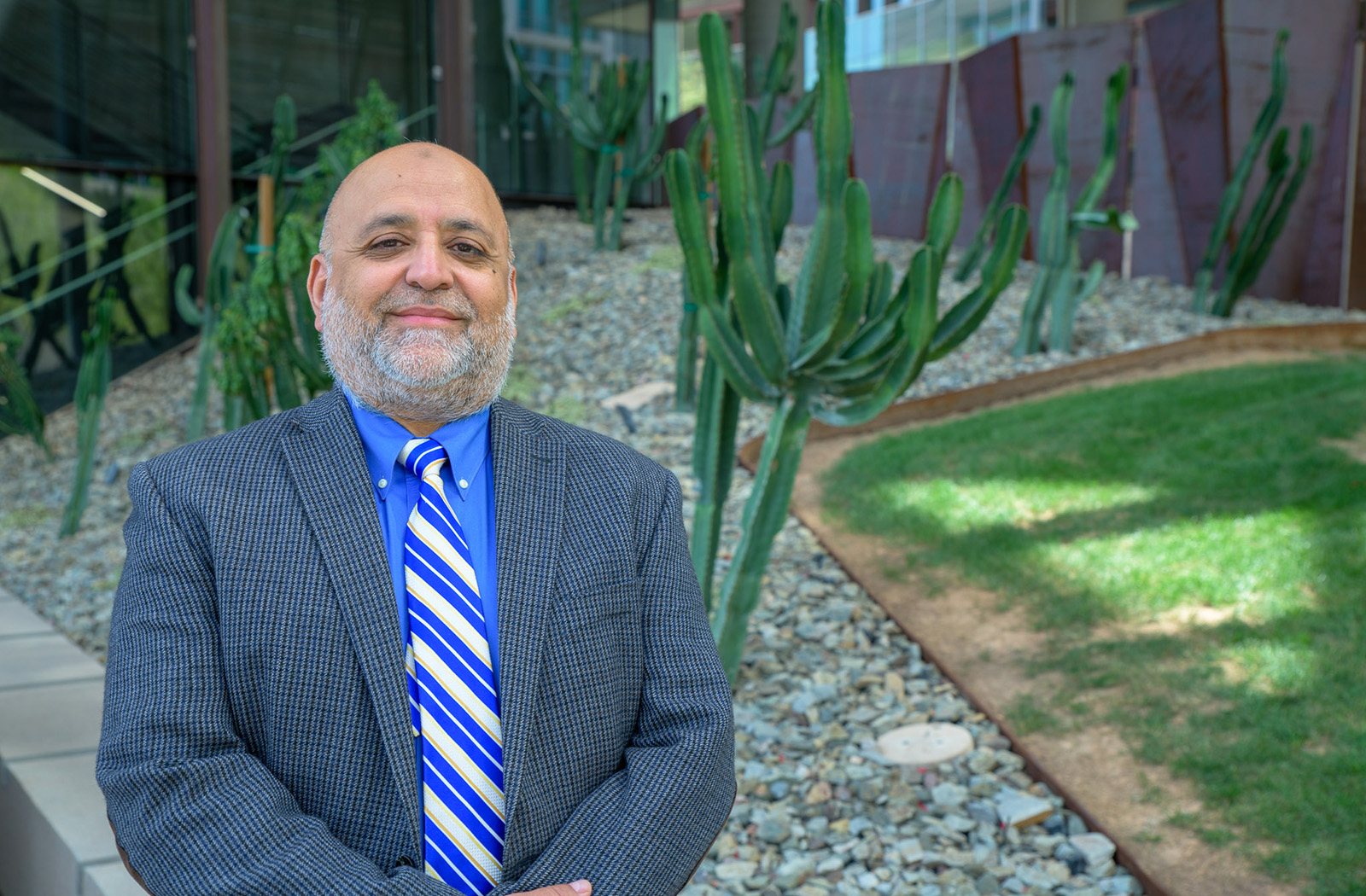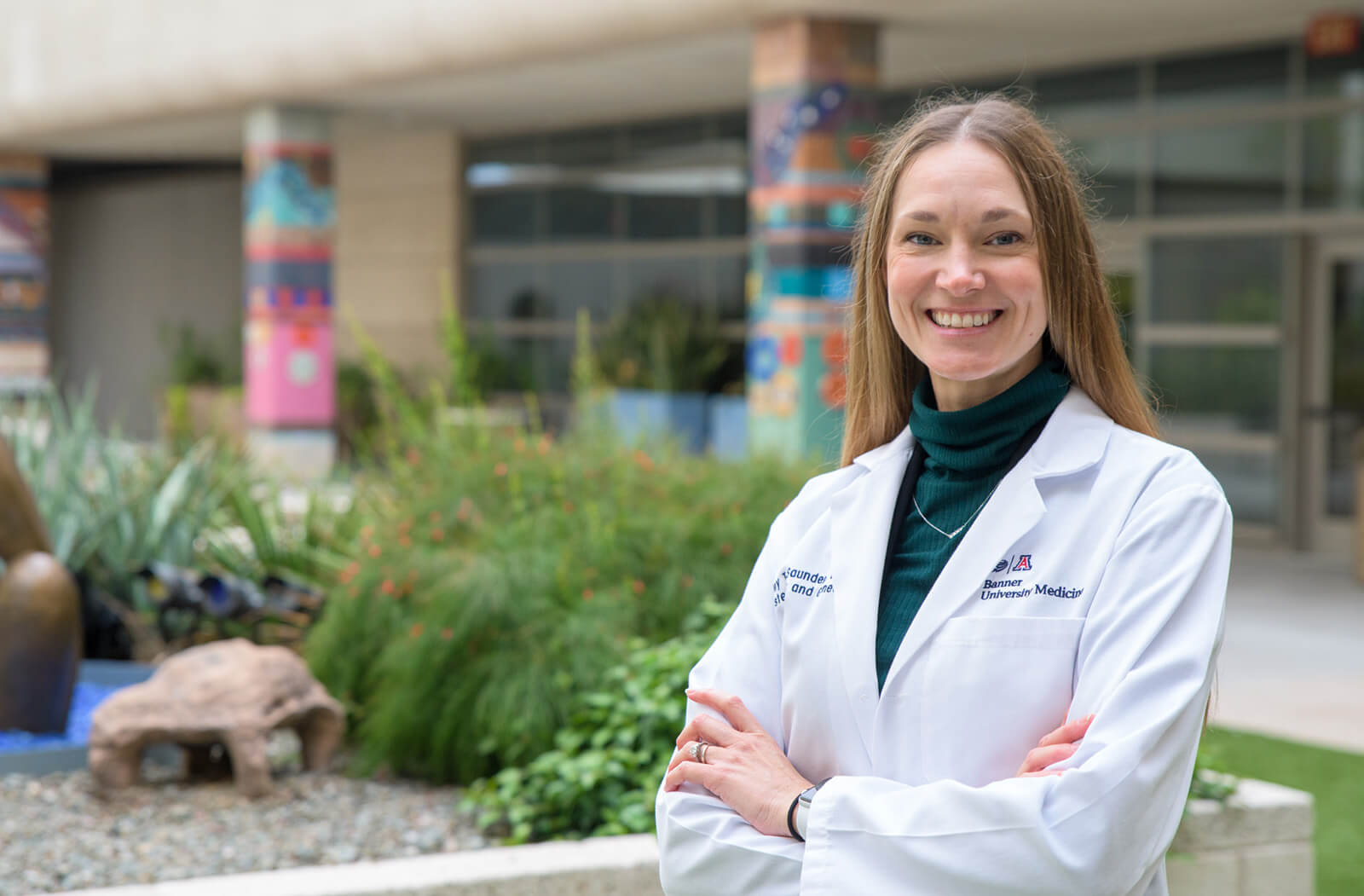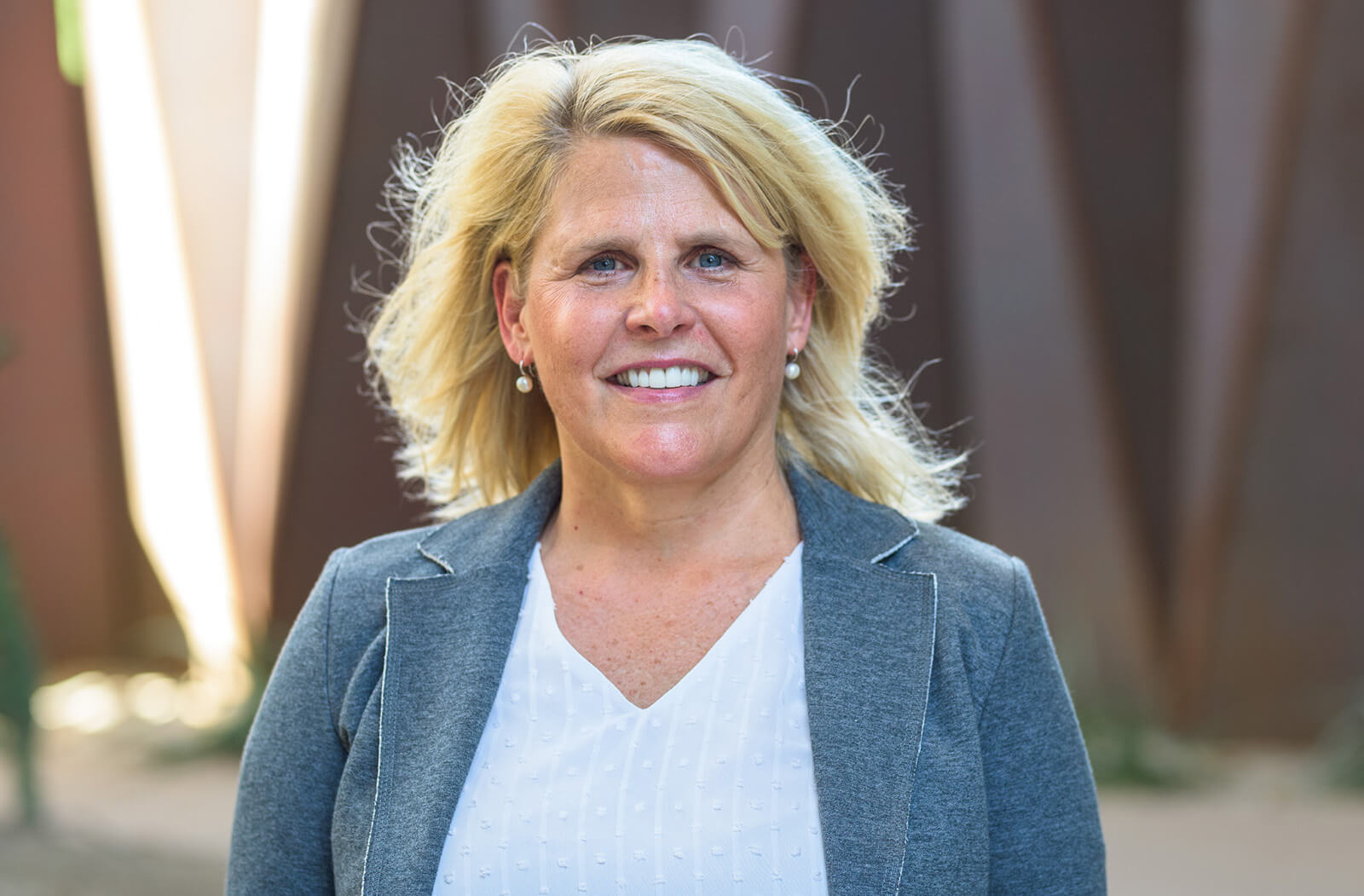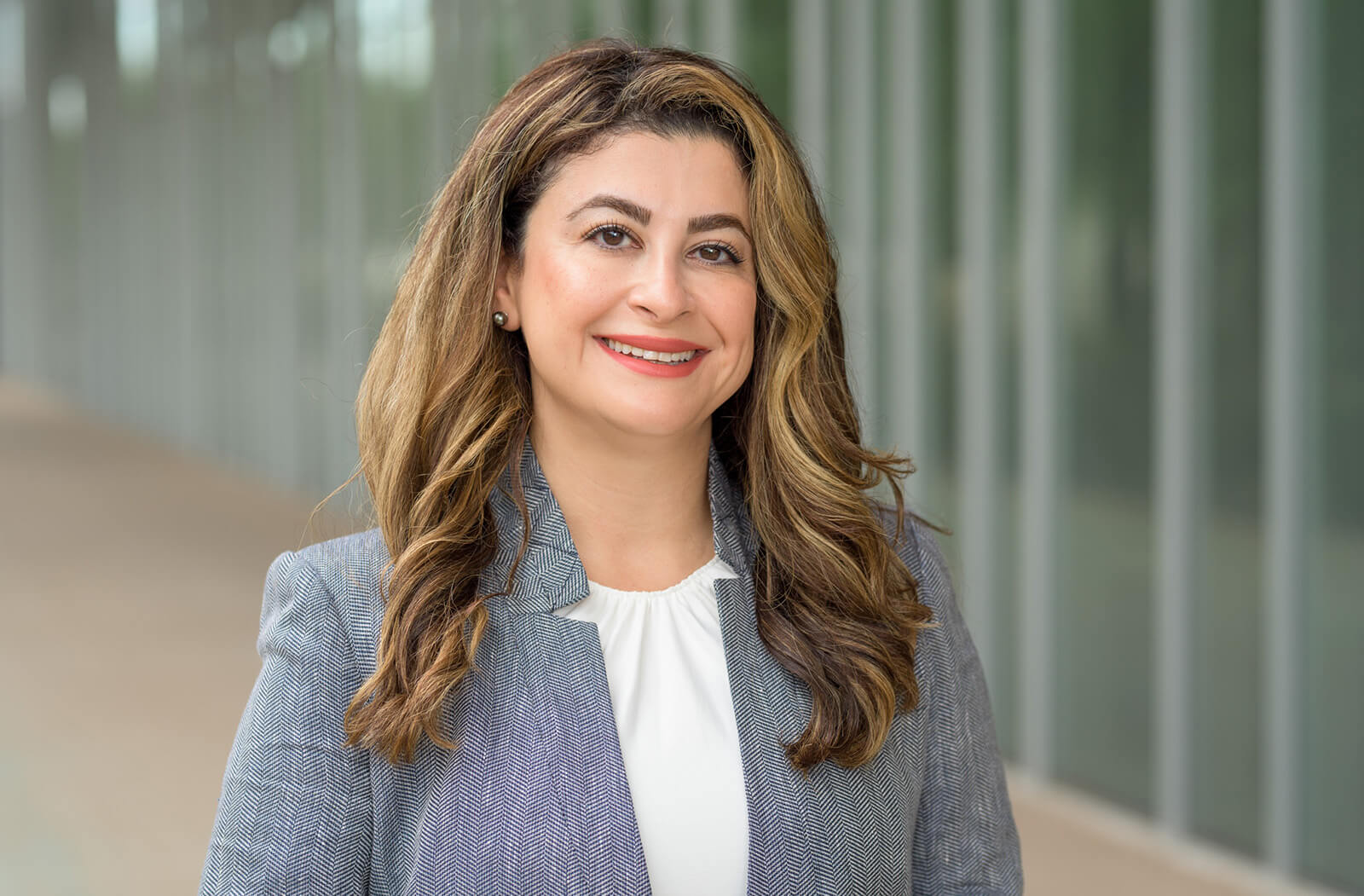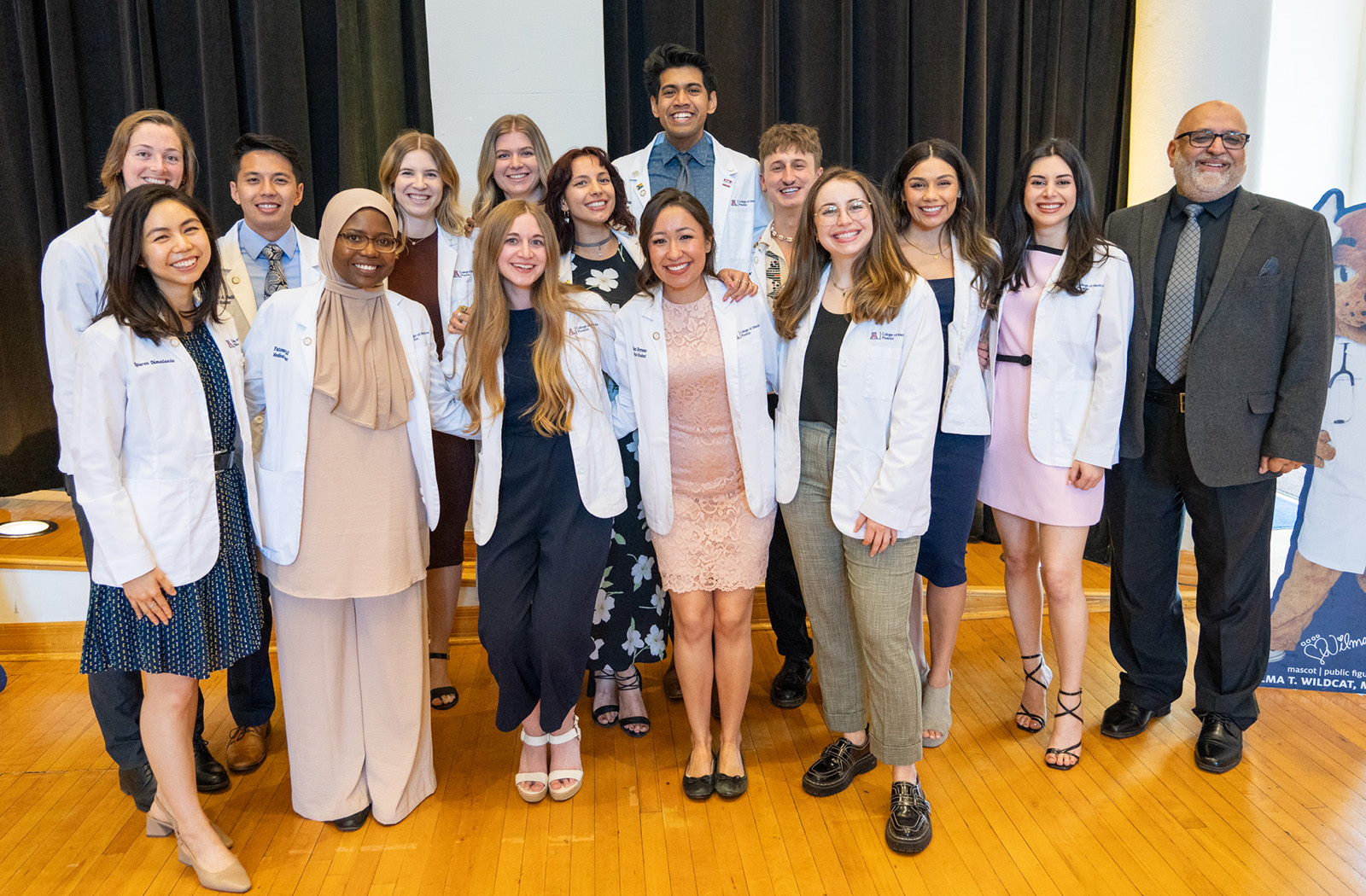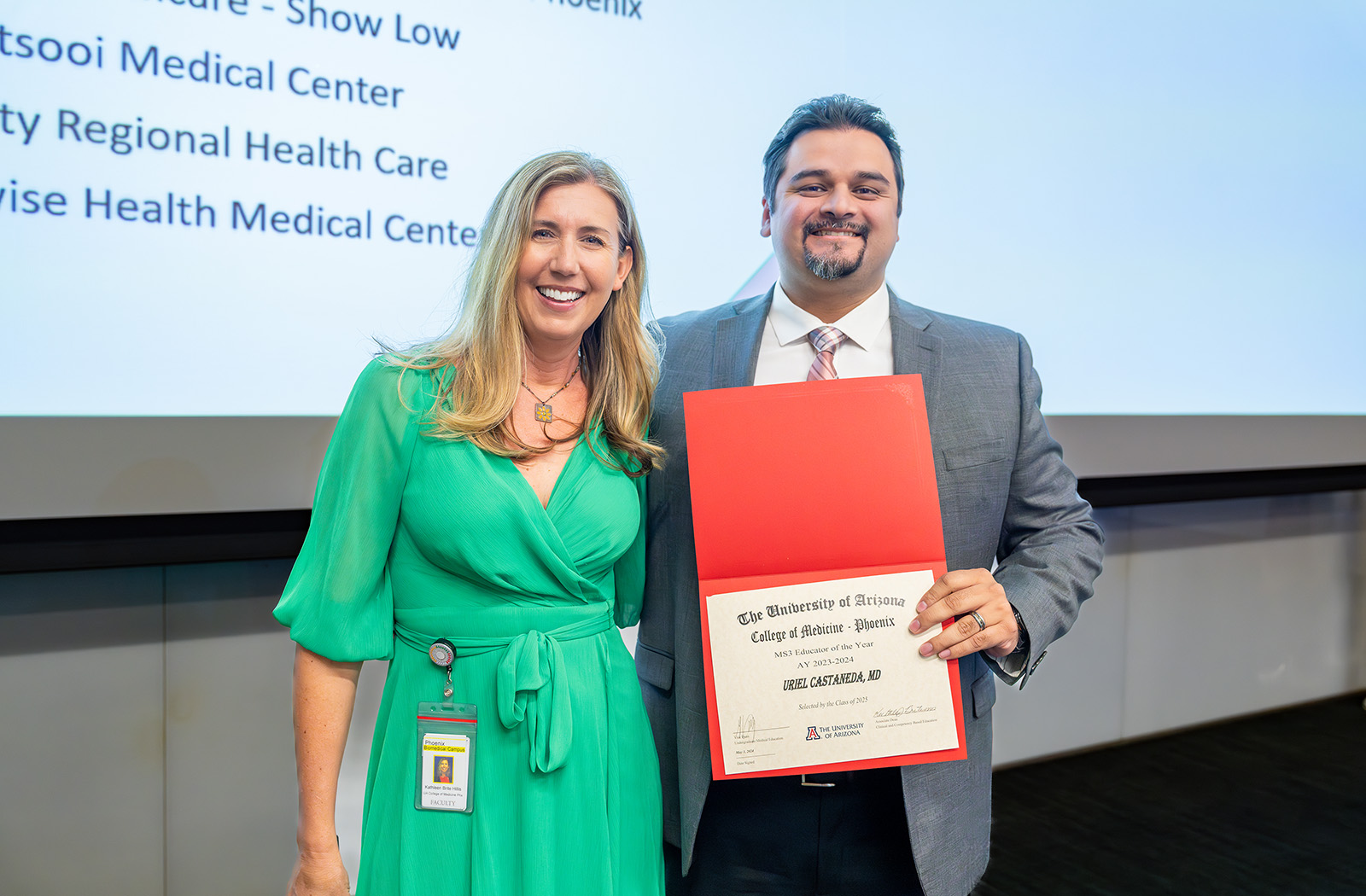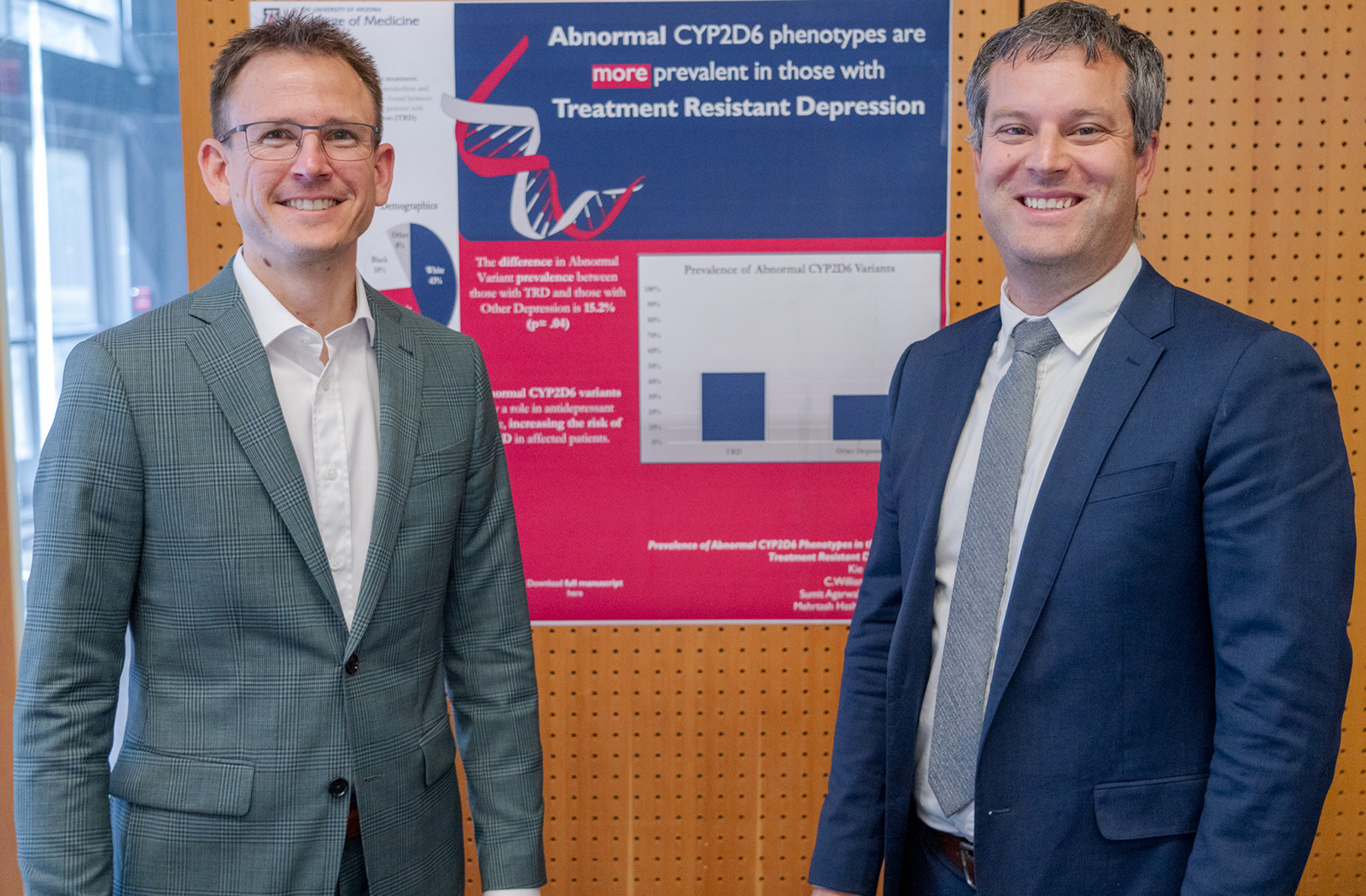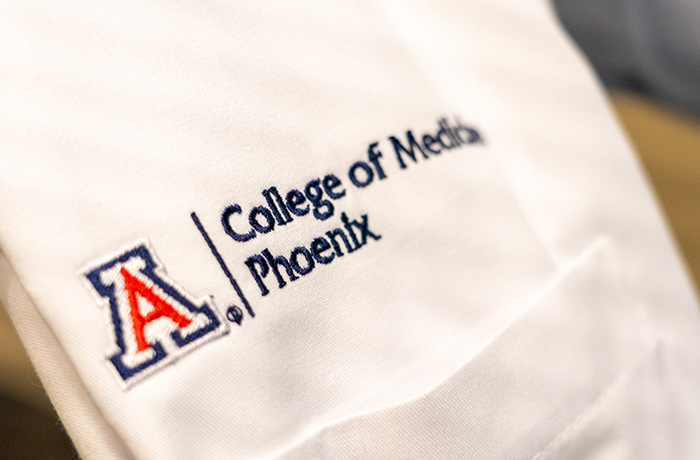Faculty
The Office of Academic and Faculty Affairs is committed to developing a vibrant, engaged, diverse community of faculty. The office provides current and prospective faculty, administrative personnel, department chairs and college leaders with information and resources.
The College utilizes over 2,000 faculty — both on-campus and volunteer community physicians and scientists — who provide their skills, expertise and time to train the next generation of physicians. Our faculty share a strong commitment to:
- Inspire and provide excellence in the teaching of our medical students;
- Evidenced-based outcomes to accelerate research into practice;
- Dedicated service and advocacy to improve health outcomes for the communities served.
Faculty Affairs
- Apply for academic title with the UArizona College of Medicine – Phoenix.
- Get involved with UArizona College of Medicine – Phoenix education and research.
- Connect with current faculty.
- Access resources and tools for prospective and current faculty.
Career Development
- Navigate career progression.
- Sharpen your academic and research skills.
- Improve your teaching practice.
- Develop your leadership competency.
2,706
Total Teaching Faculty
1,193
Total Full-Time Faculty
9
Number of Clinical Partners
Updated: 10/30/23
Faculty Spotlights
Faculty Spotlight
Women to Watch in Medicine and Science – Kristen Renner, PhD
For amateur to professional athletes, Dr. Renner is working to make sports injuries more preventable than inevitable
Faculty Spotlight
Frank J. Rybicki, MD, PhD, Appointed Chair of the Department of Radiology
A renowned diagnostic radiologist, Dr. Rybicki specializes in cardiovascular imaging and 3D printing
Faculty Spotlight
Women to Watch in Medicine and Science – Carla C. Allan, PhD
To best serve patients struggling with mental health, Dr. Allan is developing adaptable intervention strategies
Faculty Spotlight
Shakaib Rehman, MD, Named VA’s Designated Education Officer of the Year
Dr. Rehman is a champion of teachers of health professions trainees
Faculty Spotlight
Women to Watch in Medicine and Science – Vasudha L. Bhavaraju, MD
As an expert in medical education, Dr. Bhavaraju enjoys engaging with and guiding the next generation of physicians
Faculty Spotlight
Women to Watch in Medicine and Science – Maa-Ohui Quarmyne, MD
Dr. Quarmyne strives to provide equity in health care for adults with sickle cell disease
Faculty Spotlight
Alumni Profile: Kelley T. Saunders, MD
Her mother’s battle with breast cancer inspired her career pivot to medicine
Faculty Spotlight
Women in Medicine and Science – Donna L. Holland, MD, FACP, FAAP
Dr. Holland seeks to eliminate barriers to equitable health care and to train the her physicians to continue that mission
Faculty Spotlight
Women in Medicine and Science – Yasmin Alishahi, MD, FACG
Dr. Alishahi finds purpose in helping veteran patients with GI disorders and teaching the next generation of...
News
News
Complexities of Maternal Care Highlighted at the Arizona Perinatal Improvement Summit
Summit featured a series of talks on emerging trends and strategies for improving maternal health
News
Students, Faculty and Residents from the College Inducted into the Gold Humanism Honor Society
Sixteen students, three faculty and six residents were chosen for exemplifying humanism in health care
News
Faculty Honored for Dedication and Support of Medical Education by Each Class of Students
Faculty thankful to be recognized by the students they helped to train
News
Senior Celebration Highlights the Accomplishments of the Class of 2024
Members of the graduating class were recognized for their work across specialties and within extracurricular programs
News
Phoestival of Health Brings Fresh Produce and Food Experts to Downtown
Students from the college’s Culinary Medicine Program led a cooking demonstration with True Food Kitchen
News
Sharry Veres, MD, Named One of Phoenix Business Journal’s Outstanding Women in Business
Dr. Veres was honored for her advocacy to improve access to primary care
News
Pharmacogenomics Symposium Showcased Progress and Potential in the Field
Leading experts discussed the roles that gene-drug interactions and more serve in providing precision medicine
News
9th Annual Research Conference Highlights Innovation and Discoveries from Across the Valley
Renowned investigators from across Arizona share advances in medical research that may improve patient outcomes
Events
Faculty
Women in Medicine and Science Spring Dinner
May 23, 2024 | 5:30 PM to 7:30 PM
Save the date for the Women in Medicine and Science Executive Committee's 7th Annual Spring Dinner
Staff
Mini-Health Screening
May 23, 2024 | 8:00 AM to 11:00 AM
This 20-minute general screening is available to benefits-eligible employees at no cost once per calendar year.
Staff
CAPTRUST: Managing and Reducing Financial Stress
July 17, 2024 | 9:00 AM to 9:30 AM
Financial stress is unavoidable, but it shouldn’t stop you from reaching your financial goals. As part of our short-form webinar series, ASK CAPTRUST, this panel discussion will explore the impact of financial stress on mental health and more. We’ll also discuss practical tips for managing stress now and in the future.
Community
Class of 2028 White Coat Ceremony
July 19, 2024 | 3:30 PM to 5:00 PM
The white coat is a symbol of dedication and commitment to becoming a compassionate and competent physician
Staff
CAPTRUST: Retirement Income Withdrawal Strategies
August 21, 2024 | 10:00 AM to 11:00 AM
This webinar will teach you about various withdrawal strategies, such as the 4-percent rule and required minimum distributions (RMDs). You will also learn how to roll over your retirement savings into an individual retirement account (IRA) or leave it in your employer-sponsored plan.
Employees
QPR Gatekeeper Training
September 10, 2024 | 12:00 PM to 1:30 PM
Help save a life with three simple steps. Just as people trained in CPR help save thousands of lives each year, people trained in QPR learn to recognize the warning signs of a suicide crisis and to question, persuade, and refer someone to help.
Staff
The Importance of Rough & Tumble Play
September 10, 2024 | 11:00 AM to 12:00 PM
Join us to learn how to safely facilitate and promote this key developmentally helpful activity.
Staff
Supporting Employee Well-being: What Can You Do As A Manager
September 17, 2024 | 12:00 PM to 1:00 PM
This session will discuss practical ways to demonstrate to employees that you and your organization support their well-being.
Staff
Working Adult’s Nutrition Primer
September 18, 2024 | 10:00 AM to 10:30 AM
We will discuss how to estimate your calorie needs, the types of foods you should eat to get needed nutrients and how to eat healthy at work.

